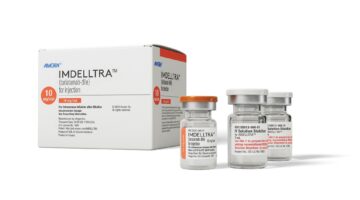Flagship VentureLabs and Children’s Hospital Boston spin out ModeRNA Therapeutics to commercialize researchers’ discovery of a way to reprogram human skin cells so that they become stem cells, bypassing the creation of stem cell lines from human embryos.
Hot on the heels of the announcement of a revolutionary method of creating stem cells without destroying human embryos, the Harvard researchers who discovered the technique are spinning out a company to commercialize it.
Researchers at Boston’s Harvard Stem Cell Institute discovered a way to reprogram human skin cells so that they become stem cells, bypassing the creation of stem cell lines from human embryos.

A Deep-dive Into Specialty Pharma
A specialty drug is a class of prescription medications used to treat complex, chronic or rare medical conditions. Although this classification was originally intended to define the treatment of rare, also termed “orphan” diseases, affecting fewer than 200,000 people in the US, more recently, specialty drugs have emerged as the cornerstone of treatment for chronic and complex diseases such as cancer, autoimmune conditions, diabetes, hepatitis C, and HIV/AIDS.
Research published in the journal Cell Stem Cell details how the team, led by Derrick Rossi, used RNA from stem cells to transform ordinary skin cells into induced pluripotent stem cells. The technique avoids using a virus to carry new genes into the cells — and the controversial destruction of human embryos to derive stem cells.
That technique is at the heart of high-profile legal wrangling between the U.S. government and two researchers who sued to stop federal funding of research using stem cells from embryos. Judge Royce Lamberth of the U.S. District Court for the District of Columbia ruled late in the summer that federal funds could not be used for the the research, derailing scores of projects looking into the causes of diseases like Parkinson’s, Alzheimer’s and cystic fibrosis. President Barack Obama had sought to restore stem cell research funding from constraints imposed under the Bush administration, but Lamberth ruled that the policy violated the Dickey-Wicker Amendment, aimed at stopping the destruction of human embryos. This week a three-judge panel on a federal appeals lifted Lamberth’s injunction barring the funding.
Now Rossi’s team’s discovery may make the case a moot point. At any rate, Rossi will lead the new company, ModeRNA Therapeutics, with backing from Flagship VentureLabs, according to a press release.
Here’s a video explaining the new technique:
The Massachusetts Medical Devices Journal is the online journal of the medical devices industry in the Commonwealth and New England, providing day-to-day coverage of the devices that save lives, the people behind them, and the burgeoning trends and developments within the industry.














